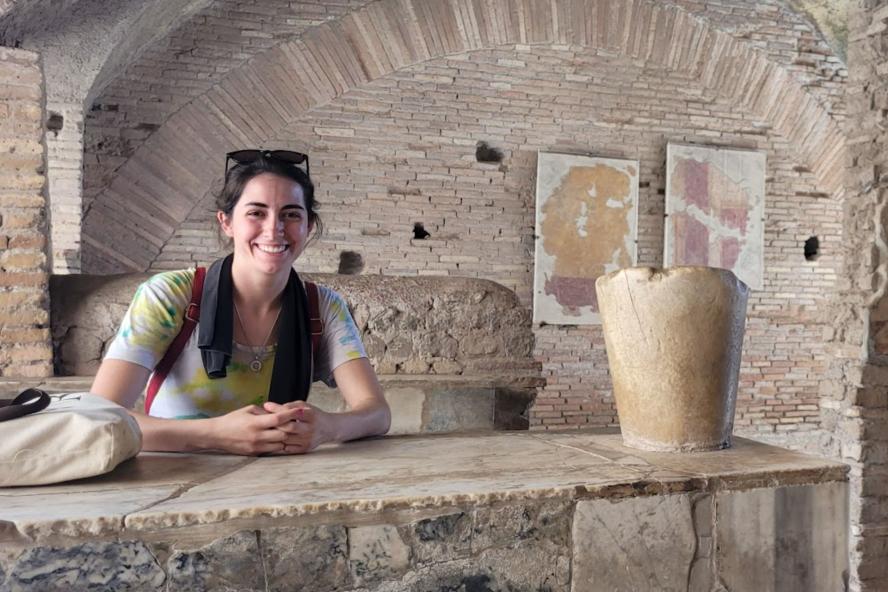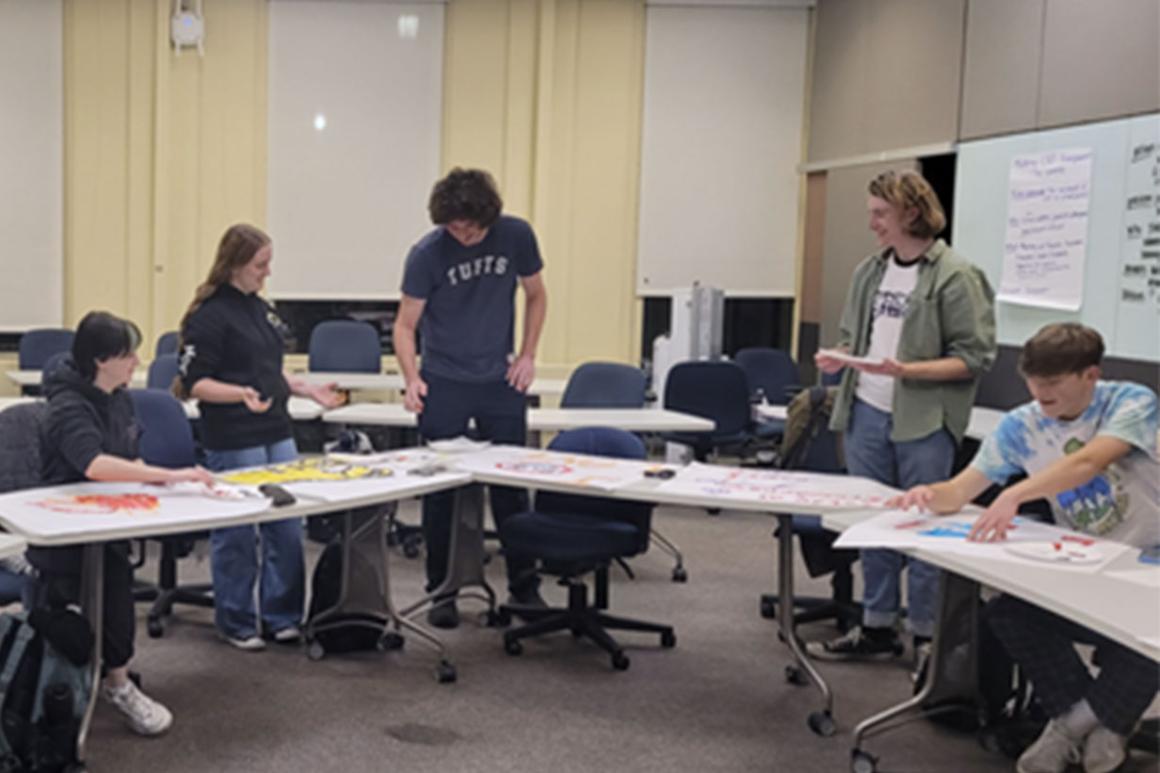Instructor Spotlight: Mikayla Barreiro

Tell us about your background and what inspired you to teach this course
I hadn't planned on studying ancient history as an undergrad, but I spent January 2020 in the mediterranean with several members of the classics department. I distinctly remember watching Troy (2004) while driving through the Grecian countryside, my professors making sarcastic comments as we went. I started seriously thinking about how the historical media we watch shapes our understanding of the ancient world far more than academic history. Once I saw January 6th rioters dressed as Maximus from Gladiator, I realized the darker side of this phenomenon, and the importance of investigating it in a course.
Your course explores how history is represented in modern media. Do you have a favorite historical period you like to see represented? Or a favorite depiction of history?
My favorite depiction of "history" will always be Percy Jackson. As a neurodivergent middle schooler, it was the first book that made me really love to read and sparked my interest in history. I think it's amazing how the series has grown and changed over the years, really analyzing some of the more problematic aspects of how the ancient world is typically represented. So many books are being banned in schools, but Percy Jackson—because the Greeks are viewed with such respect—has yet to be put on these lists, despite its depictions of BIPOC, Queer, and other marginalized communities. The ancient world is used negatively by a lot of hate groups, but it can also be used positively, since the world has always been and will always be diverse.
What do debates about historical accuracy tell us about the culture we live in?
Ultimately, every "historical" work addresses modern culture and concerns. No one in the ancient world cared if Cleopatra was Black, but it's the first thing people freak out about in any modern telling of her life. There is a reason an Egyptian lawyer sued Netflix for their new Cleopatra series. Questions of historical accuracy are rarely questions of historical accuracy; they're a question of what parts of our culture we want to see legitimized by the past.
What is something that you are looking forward to in your course later in the semester?
I'm very excited to end the semester by watching season 1 of HBO's Rome. This is a new addition to the syllabus, and a really fascinating dive into a critical period of history. The show isn't wholly accurate, but it manages to capture the essence of Rome in a fascinating way. Additionally, people are constantly comparing modern America to the fall of Rome's Republic, so it feels especially important to ask the question —how do we think about the fall of the Roman Republic—and Rome reveals this nicely.
Mikayla Barreiro A21 is a graduate student in Classical Studies at Tufts. Her research focuses on how ancient history has been remembered, and misremembered, from antiquity to the present. She is particularly interested in how historical narratives have been used to justify sex discrimination, colonialism, and alt-right ideologies. She holds an MA in Medieval Studies from Yale. Mikayla was a peer teacher through the ExCollege in the Spring of 2021, co-teaching the course, Historical Fact Versus Historical Fiction in Pop Culture.
